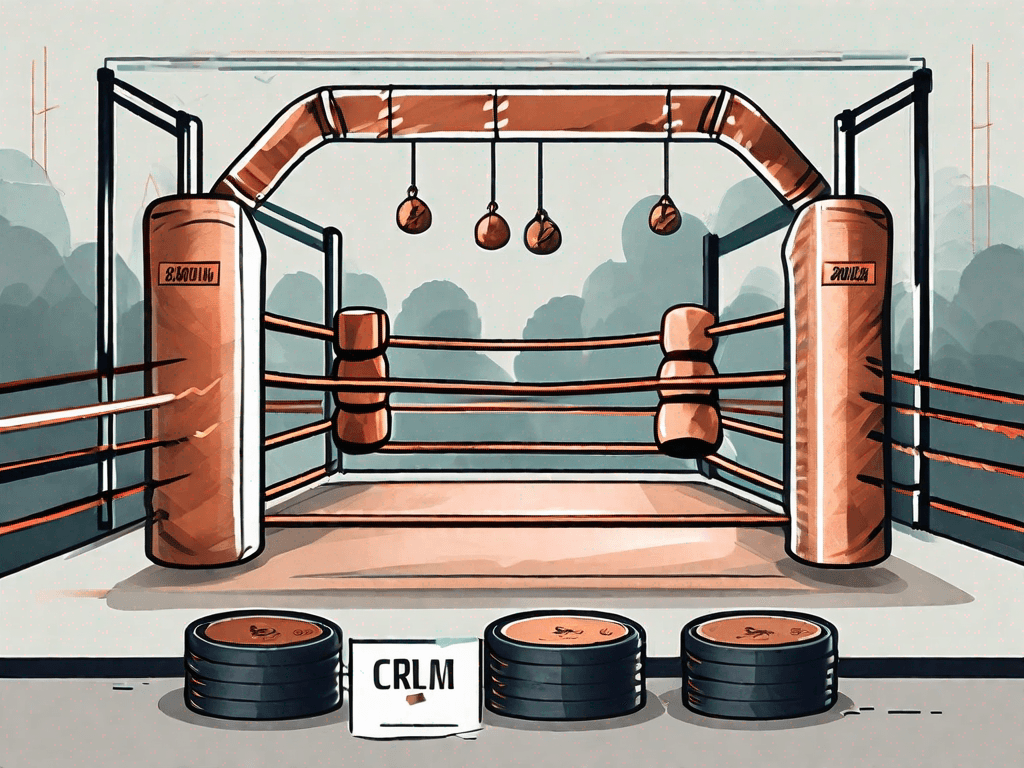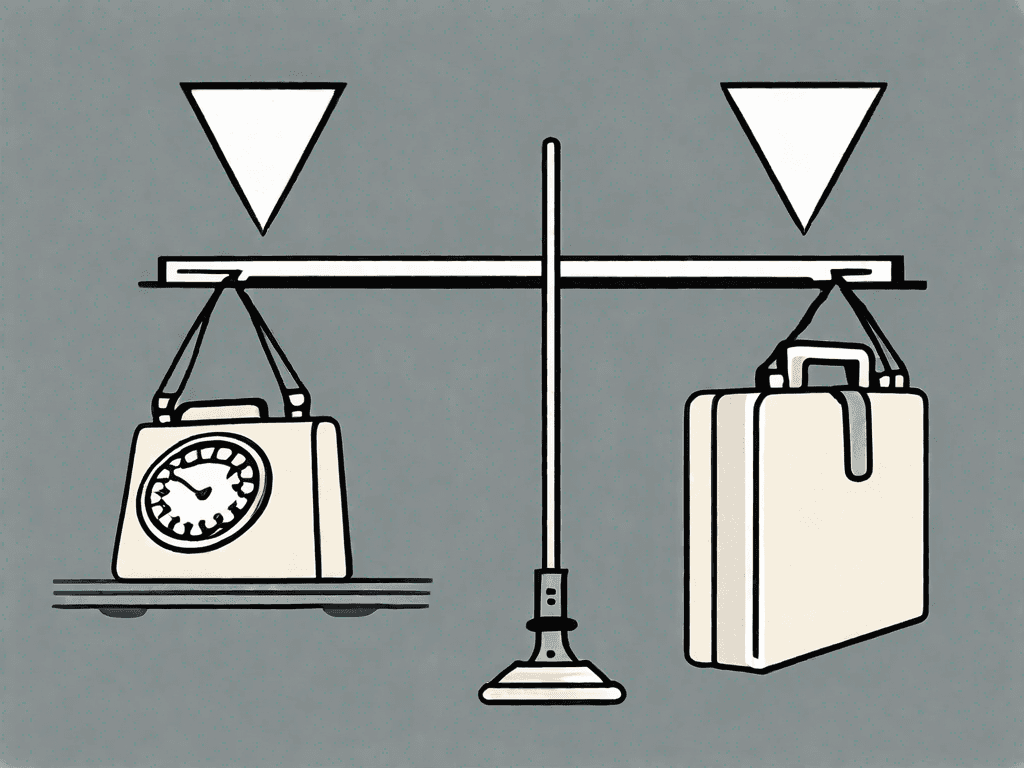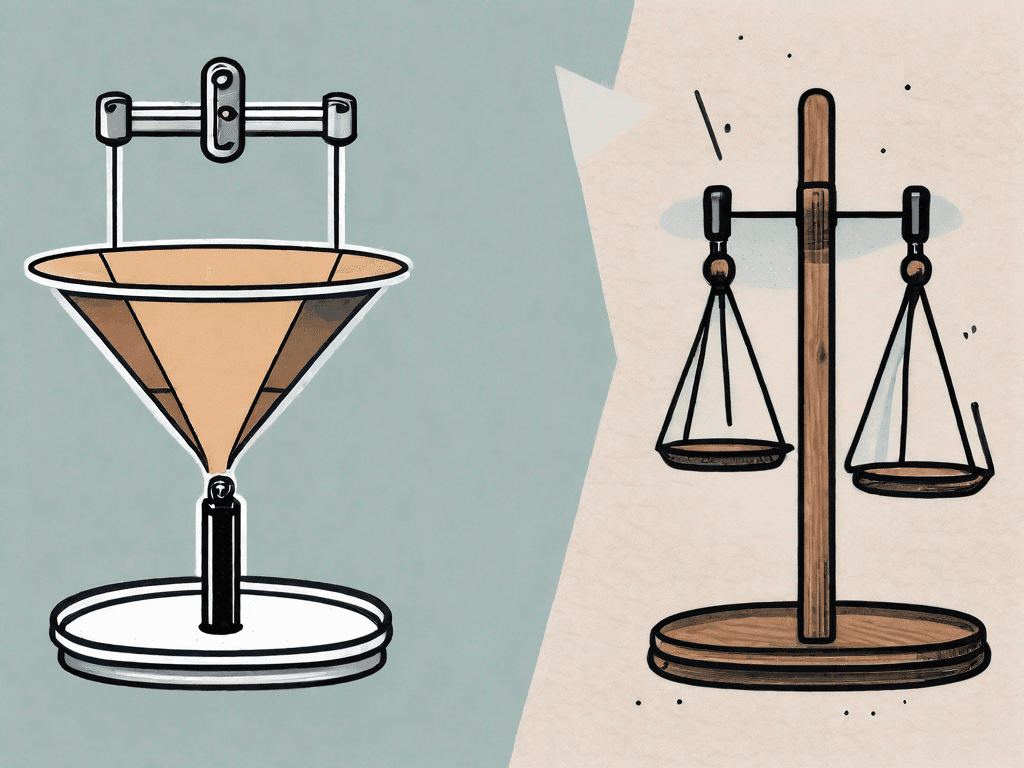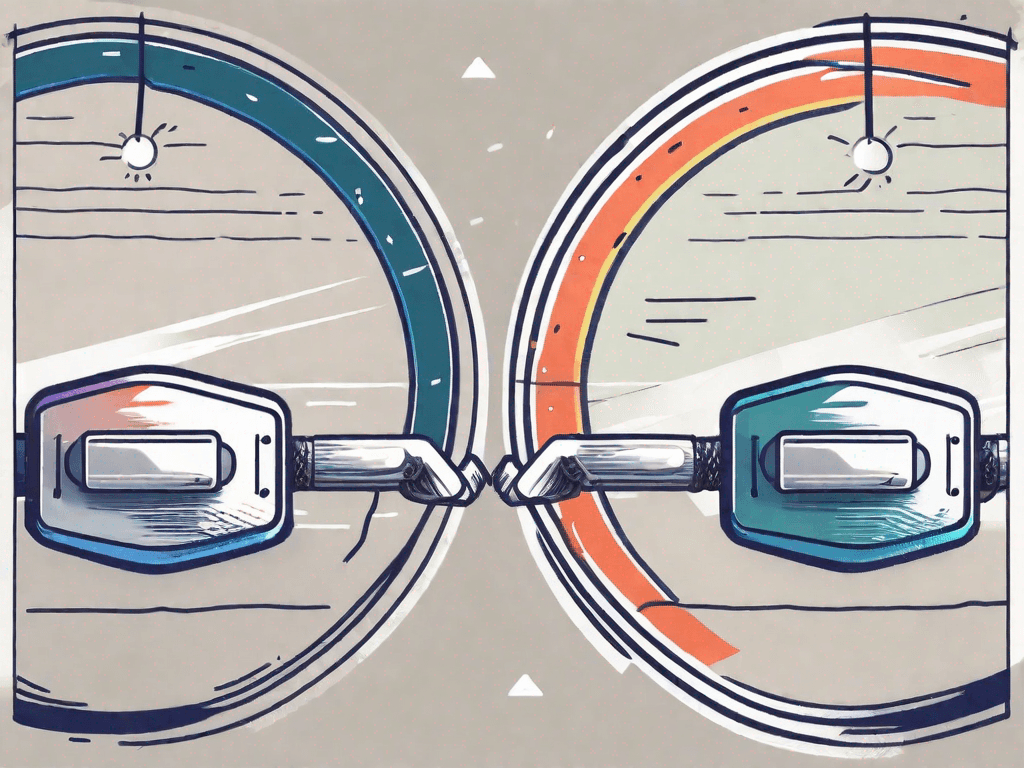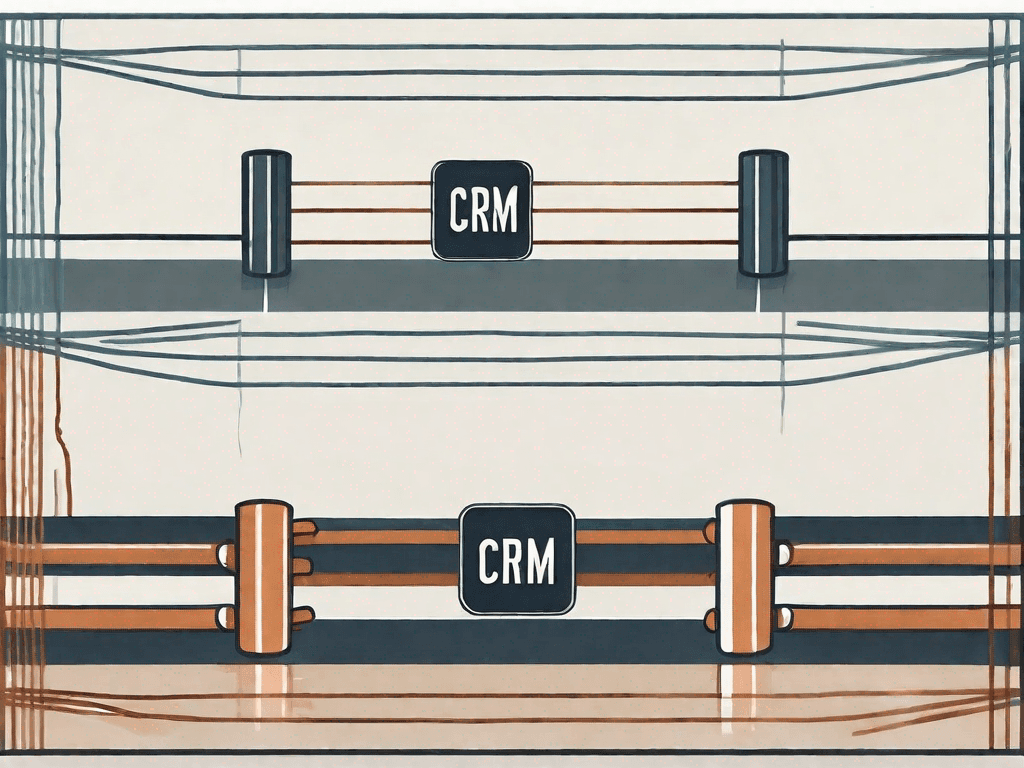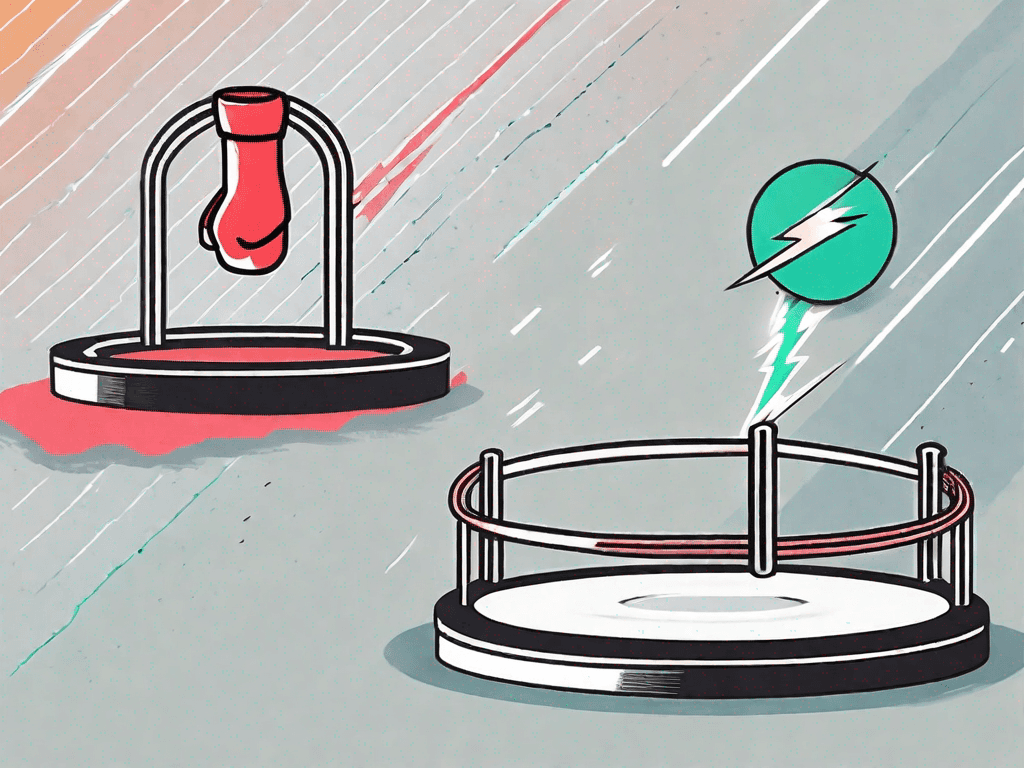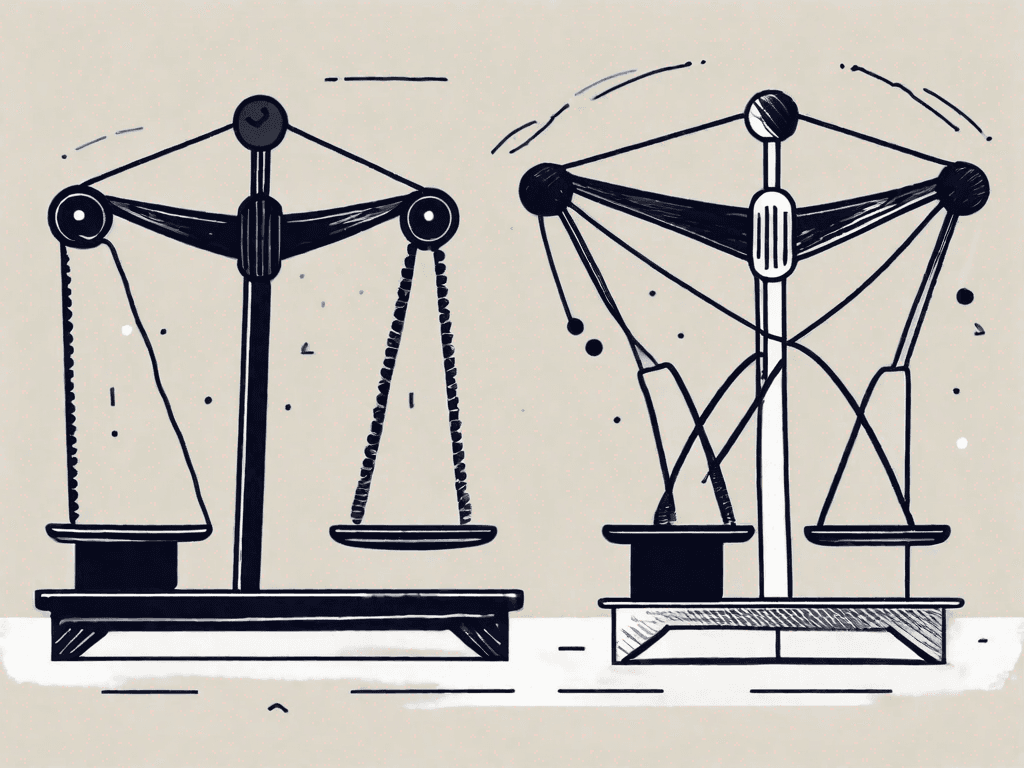
Salesmate vs noCRM: Which CRM is the Best?
In today's business landscape, customer relationship management (CRM) software has become an essential tool for organizations of all sizes. Two popular options in the market are Salesmate and noCRM. Both CRMs boast a range of features designed to streamline sales and improve customer relationships. But which one is truly the best? In this article, we will dive deep into the pros and cons of Salesmate and noCRM, explore their pricing structures, evaluate their integrations, and ultimately help you determine which CRM is the best fit for your specific needs
1°) Pros and Cons of Salesmate and noCRM
Let's start by examining the advantages and disadvantages of both Salesmate and noCRM. By taking a closer look at their strengths and weaknesses, we can gain a better understanding of their overall performance.
1.1 - Pros of Salesmate
Salesmate offers a user-friendly interface that makes it easy to navigate and use. Its robust set of features include a customizable sales pipeline, email integration, automated workflows, and sales analytics. Additionally, Salesmate provides excellent customer support, with a dedicated team that is readily available to assist users.
Moreover, Salesmate's customizable sales pipeline allows businesses to tailor their sales process to their specific needs. This flexibility enables organizations to effectively manage leads, track progress, and close deals more efficiently. The email integration feature further enhances productivity by allowing users to seamlessly communicate with clients directly from the CRM platform.
Furthermore, the automated workflows in Salesmate streamline repetitive tasks and save valuable time for sales teams. By automating processes such as lead assignment, follow-ups, and data entry, Salesmate enables sales professionals to focus on building relationships and closing deals.
Lastly, Salesmate's sales analytics feature provides valuable insights into sales performance. Users can track key metrics, such as conversion rates, deal value, and pipeline velocity, to make data-driven decisions and optimize their sales strategies.
1.2 - Cons of Salesmate
One drawback of Salesmate is its limited integrations with other software. While it does offer a handful of popular integrations, it may not meet the needs of organizations requiring more extensive integration capabilities. This limitation could pose challenges for businesses that rely on multiple software tools for different aspects of their operations.
In addition, Salesmate's reporting and analytics features could be more comprehensive. While it provides basic sales analytics, organizations that heavily rely on data-driven decision making may find the available insights insufficient. Advanced reporting capabilities, such as customizable dashboards and in-depth data visualization, are essential for businesses that require a deeper understanding of their sales performance.
1.3 - Pros of noCRM
noCRM is praised for its simplicity and ease of use, particularly for sales teams. It provides a clean user interface and a straightforward approach to managing leads and customer interactions. With its intuitive design, noCRM minimizes the learning curve and allows sales professionals to quickly adapt to the CRM platform.
Another significant advantage of noCRM is its comprehensive lead management features. The software allows sales professionals to efficiently track leads, from initial contact to conversion. Users can easily categorize leads, assign tasks, and monitor progress, ensuring that no potential opportunity falls through the cracks.
Furthermore, noCRM's lead scoring feature helps sales teams prioritize their efforts by identifying the most promising leads. By assigning scores based on predefined criteria, sales professionals can focus on leads with the highest likelihood of conversion, maximizing their efficiency and closing rates.
1.4 - Cons of noCRM
One limitation of noCRM is its lack of advanced reporting and analytics capabilities. While it does provide basic reporting features, organizations requiring in-depth analysis and reporting may find themselves needing additional tools. Advanced reporting functionalities, such as customizable reports and real-time data visualization, are crucial for businesses that rely heavily on data insights to drive their sales strategies.
Additionally, noCRM does not offer as many customization options as Salesmate. While its simplicity is an advantage for some users, businesses requiring more flexibility to tailor their CRM solution to their specific needs may find the customization options in noCRM limited. Customization capabilities are essential for organizations that have unique sales processes or require specific data fields to be captured.
1.5 - Key Differences between Salesmate and noCRM
When comparing Salesmate and noCRM, it's important to consider their key differences. Salesmate offers more extensive integration options, making it suitable for organizations with complex software ecosystems. Its ability to seamlessly integrate with various software tools allows businesses to streamline their operations and centralize their data.
On the other hand, noCRM's simplicity and lead-focused approach make it an ideal choice for small sales teams or individual sales professionals seeking a streamlined CRM solution. Its intuitive interface and comprehensive lead management features enable users to effectively manage their sales pipeline and convert leads into customers.
In conclusion, both Salesmate and noCRM have their strengths and weaknesses. The choice between the two depends on the specific needs and preferences of the organization or sales team. Evaluating their pros and cons, along with considering the key differences, will help businesses make an informed decision when selecting a CRM solution.
2°) How does Salesmate pricing compare to noCRM?
Price is a crucial factor to consider when choosing a CRM. Let's examine the pricing structures of Salesmate and noCRM to determine which one offers better value for money.
2.1 - Salesmate Pricing
Salesmate offers flexible pricing plans to cater to businesses of all sizes. Their plans range from the Starter plan, suitable for small teams, to the Enterprise plan, designed for larger organizations with advanced requirements. It's worth noting that Salesmate offers a 15-day free trial, allowing users to test out the platform before committing to a subscription.
2.2 - noCRM Pricing
noCRM also offers various pricing options, with plans tailored to meet the needs of different types of users. Their plans range from the Solo plan, ideal for individual sales professionals, to the Expert plan, suitable for larger sales teams. Similar to Salesmate, noCRM offers a free trial period, enabling users to explore the features and functionalities before making a decision.
2.3 - Pricing Comparison
When comparing the pricing of Salesmate and noCRM, it's essential to consider the specific needs and budget of your organization. Both CRMs offer competitive pricing, but the features and scalability associated with each plan may differ. Carefully evaluate the features included in each plan and consider the long-term growth potential of your business when making a decision.
3°) How do Salesmate integrations compare to noCRM?
Integrations play a significant role in enhancing the functionality of any CRM. Let's examine how Salesmate and noCRM stack up in terms of their integration offerings.
3.1 - Salesmate Integrations
Salesmate boasts a wide range of integrations with popular software tools used in various business functions. These integrations include email marketing platforms, accounting software, project management tools, and more. By seamlessly connecting with these external tools, Salesmate allows businesses to centralize their data and streamline their workflows.
3.2 - noCRM Integrations
noCRM also offers integrations with commonly used tools, although its range may be more limited compared to Salesmate. However, noCRM perfectly integrates with widely adopted communication channels, such as email and messaging platforms, ensuring smooth communication and collaboration within the CRM.
4°) Which one is the Best for You?
Finally, the question arises: which CRM is the best fit for your specific needs? Let's delve into different scenarios to determine the ideal CRM for various professionals.
4.1 - The Best for Salespeople
If you are a salesperson looking for a CRM that offers advanced features, comprehensive reporting, and extensive integration capabilities, Salesmate would be the better choice for you. Its robust functionalities and user-friendly interface make it an excellent tool for maximizing sales efficiency and driving growth.
4.2 - The Best for Consultants
For consultants who primarily focus on lead management and require a CRM that offers a simple yet effective way of tracking and nurturing leads, noCRM is the optimal choice. Its intuitive interface and lead-centric features make it easy for consultants to stay organized and convert leads into clients.
4.2 - The Best for Digital Marketing Agencies
Digital marketing agencies often have complex software ecosystems and rely heavily on data analysis. Therefore, Salesmate, with its broad range of integrations and advanced reporting capabilities, would be the best fit for such agencies. It empowers marketing teams to consolidate data from various sources, make data-driven decisions, and optimize their campaigns for better results.
In conclusion, Salesmate and noCRM are both competitive CRM solutions with unique advantages and disadvantages. By carefully evaluating their pros and cons, considering their pricing structures, comparing their integration offerings, and aligning them with your specific needs, you can determine which CRM will be the best fit for your business. Remember, the best CRM is the one that aligns with your organization's goals, boosts productivity, and helps nurture valuable customer relationships.











![The 8 Best Social CRM Software in 2025 [Comparison]](https://framerusercontent.com/images/RYHyYapdgIi83BEWtMdX418.png)
![The 6 Best LinkedIn CRM in 2025 [Comparison]](https://framerusercontent.com/images/Luywfni7ZKjb19yghbhNPy4I4qQ.png)



![The 5 Best Twitter CRM [Comparison]](https://framerusercontent.com/images/EWcbvYnVZglJLO8jp3OlHkTvsHo.png)

































































































































































